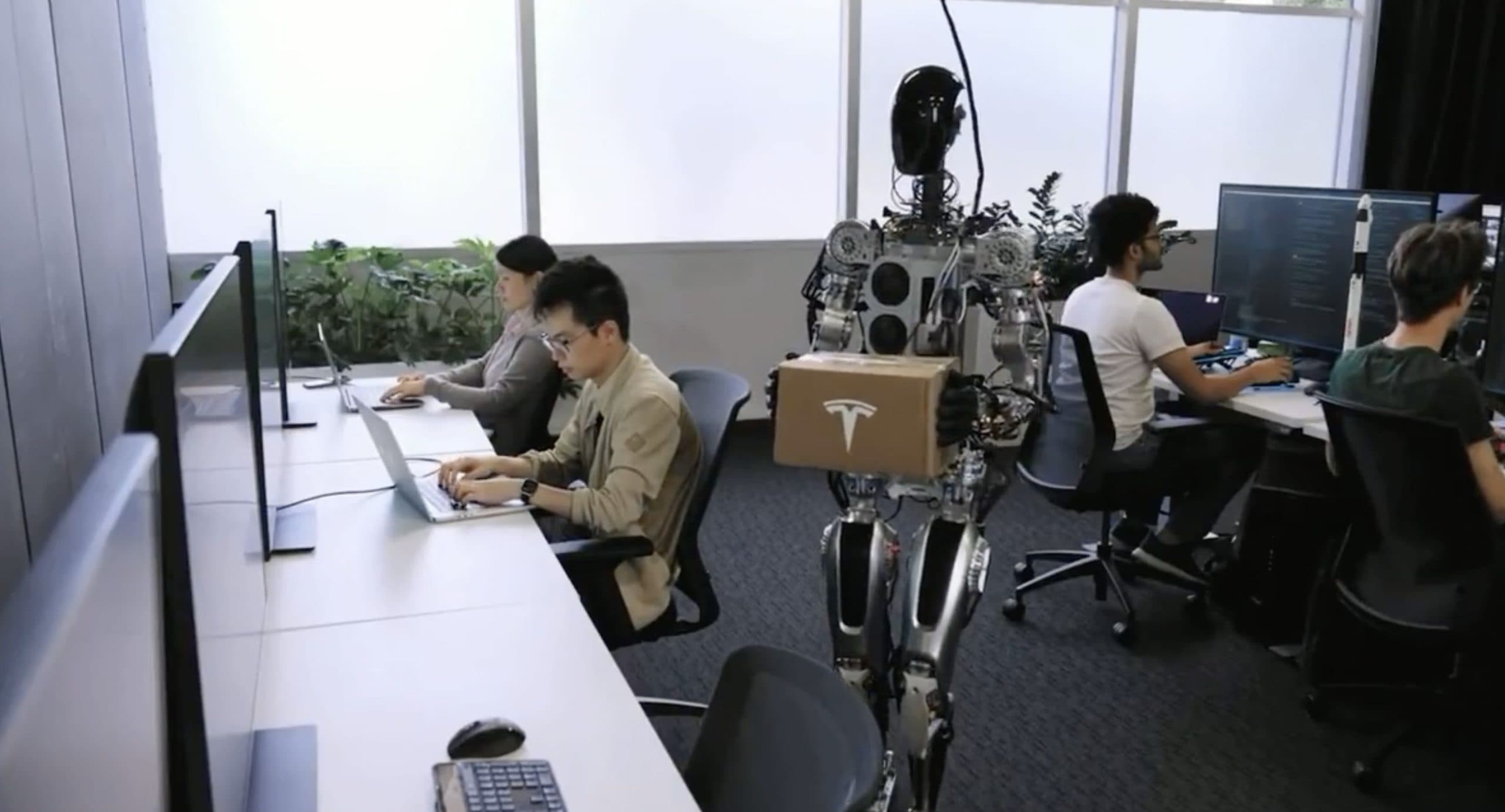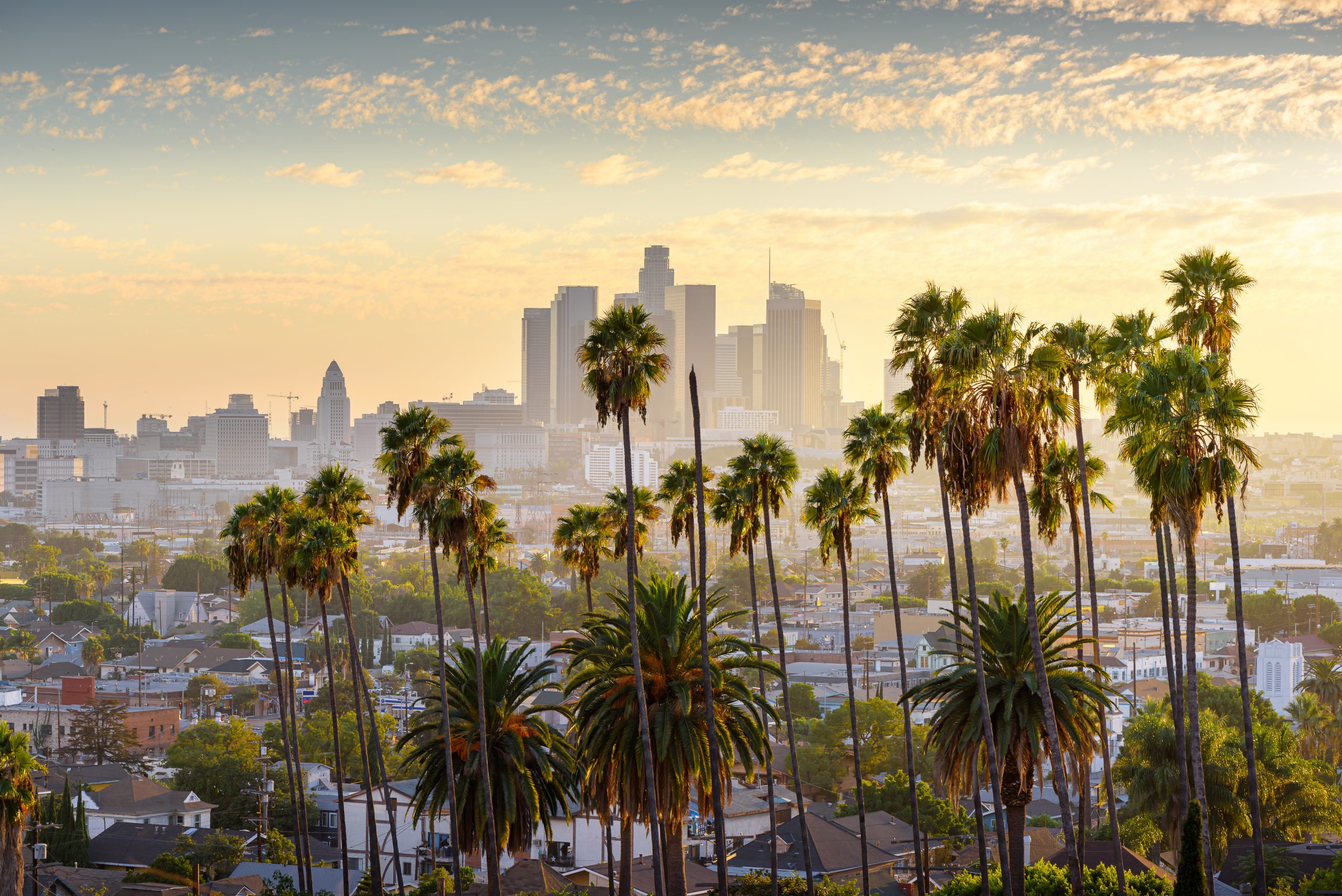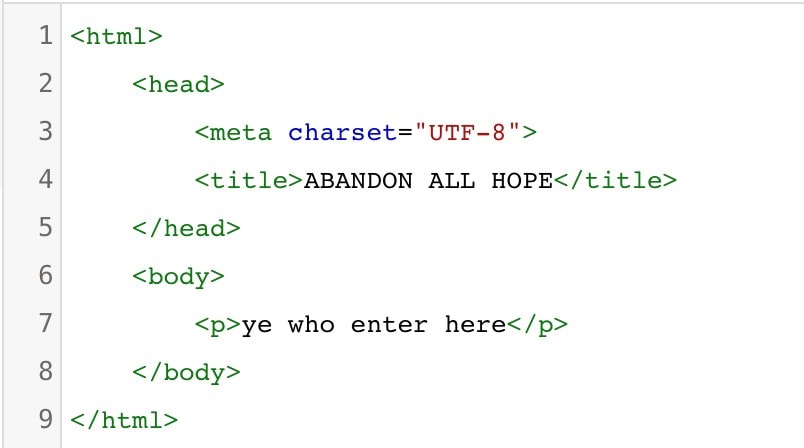Addressing the harms of persuasive technology
Rise of the Tesla Bots

Raising the minimum wage will accelerate the replacement of low-skilled workers by machines.
Elon Musk has unveiled his latest brainchild—the Optimus Tesla Bot—a humanoid robot designed to help with repetitive, low-skill, and boring tasks such as flipping burgers or washing windows. The artificial intelligence-powered Bots could replace any number of tasks involving manual labor, and can supposedly even handle not only dangerous but unusual jobs, such as exotic dancing and stripping. Although the robot is not yet for sale, Musk noted that it is expected to cost much less than a car, with a price point below $20,000 in order to make a useful humanoid robot as quickly as possible. While the rollout of the Tesla Bot has evoked references to dystopian science fiction, the introduction could not have come at a better time in California, where elected officials aim to raise the minimum wage for fast food workers to nearly $22 an hour next year.
On Labor Day, California Governor Gavin Newsom signed into law the Fast Food Accountability and Standards Recovery (FAST) Act. The timing indicated that the legislation was a gift to the Service Employees International Union (SEIU), one of the most powerful unions in California—which will now be given the green light to grow its membership by organizing the nearly 750,000 employees of California’s franchised restaurants. Expanded membership means expanded riches and hence political power.
The FAST Act creates an unelected, governor-appointed body of ten members that will include worker and employer representatives, along with two state officials, which will establish fast-food restaurant industry-wide standards, rules, and regulations, including wages, hours, working conditions, and training. The state legislature typically establishes industry standards, rules, and regulations, and the new law allows elected officials to assign their regulatory responsibility to an unelected council which will, in all likelihood, do the bidding of the Governor.
The FAST Act singles out one industry for special regulatory attention, and defines the characteristics of a fast food restaurant, specifying that the establishment must be part of a set of 100 or more establishments nationally that share a common brand, or that are characterized by standardized options for decor, marketing, packaging, products, and services. It extends to chain “fast casual”-style restaurants in addition to traditional fast-food restaurants that provide food in disposable containers, with limited or no table service, to customers who pay before eating. The broad definition of the law casts a wide net to wrangle in establishments that serve “grab and go” dining options such as Starbucks, salad bars, sandwich shops, and smoothie & juice bars. Any establishment that falls within this definition will now face dramatic regulatory changes.
But most fast food restaurants (McDonald’s, Subway, Arby’s, Taco Bell, Papa John’s, and Chick Fil A, etc.) use a franchise model under which third-party operators purchase the rights to use the business’s name, branding, and model in exchange for fees or royalties and ongoing support in the form of advisement or marketing. Corporate franchising is one of the great American business innovations, dating to the 1850’s and pioneered by the Singer Sewing Machine Company. Franchises have historically served as a point of entry into business ownership, especially for underrepresented groups such as women, minorities, and immigrants. Out of the nearly 15,000 franchisees in California, minorities comprise 30% of franchise owners, which is significantly higher than 20% minority ownership at non-franchise businesses.
Marketed as a means of “holding billion dollar corporations accountable,” the FAST Act will actually target small business owners. Most franchise restaurants are in fact mom-and-pop shops which operate on slim profit margins. In California, over two-thirds of franchisees own only a single store, essentially making them small businesses.
Moreover, these restaurants typically employ young, inexperienced workers and pay them around the minimum wage. They pay them at this level not because the owners are greedy, but because they operate low-margin businesses that are designed to be operated by low-skilled workers who are trained to the specifications of the job. It doesn’t make economic sense to pay these employees an arbitrarily higher wage than the value they add. This is why a high minimum wage typically hurts younger workers, by locking them out of the labor market.
Although California is obsessed with its equity agenda, the state has the nation’s highest poverty rate, and the gap between rich and poor is ever-widening. A higher minimum wage doubles down on its hyper-regressive policies which disproportionately hurts blacks and Latinos, since we are overrepresented among its low skilled workforce. Young, minority workers who seek employment to pay for their college tuition in order to reduce their overall debt burden will suffer the most. Under the guise of equity, Newsom has decided to target small businesses and minorities in order to further his own national aspirations.
Making it more expensive to hire and train unskilled, unexperienced workers will simply accelerate the transition to replacement by machine. Elon Musk’s Tesla Bot, as weirdly dystopian as it may sound, is the predictable and obvious alternative to human labor when it is priced prohibitively high.
The American Mind presents a range of perspectives. Views are writers’ own and do not necessarily represent those of The Claremont Institute.
The American Mind is a publication of the Claremont Institute, a non-profit 501(c)(3) organization, dedicated to restoring the principles of the American Founding to their rightful, preeminent authority in our national life. Interested in supporting our work? Gifts to the Claremont Institute are tax-deductible.
Compute or be computed.
Ruthless outsourcing will be the death of the American Dream.



